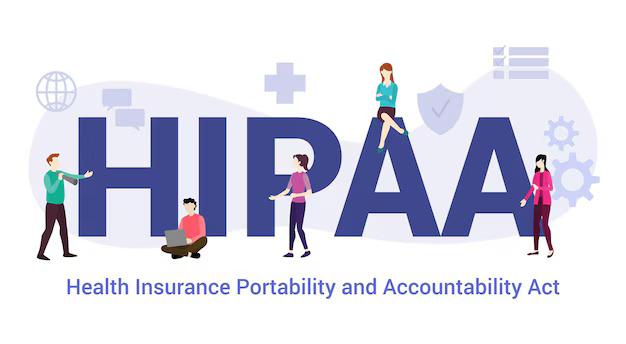All About HIPAA Policy

Health Insurance Portability and Accountability Act (HIPAA) strategies involve implementing policies and procedures to ensure that protected health information (PHI) is handled and transmitted securely and in accordance with the regulations set forth by HIPAA. This may include measures such as regular risk assessments, employee training, secure data storage and transmission, and incident response planning.
Additionally, HIPAA Policy requires covered entities (such as healthcare providers and insurance companies) to have written policies and procedures that outline how they will comply with the law and to review and update these policies as needed regularly.
Significance Of HIPAA Compliance Strategies
1. Protection of sensitive information: HIPAA compliance helps ensure that protected health information (PHI) is handled and transmitted securely, protecting patients' privacy and preventing unauthorized access to sensitive information.
2. Compliance with legal requirements: HIPAA compliance is mandatory for covered entities (such as healthcare providers and insurance companies), and non-compliance can result in significant fines and penalties.
3. Building trust: Demonstrating compliance with HIPAA compliance strategies can help build trust with patients, who may be more likely to share sensitive information with a provider who demonstrates a commitment to protecting that information.
4. Risk management: Implementing HIPAA compliance strategies can help identify and mitigate potential security risks, reducing the likelihood of a data breach or other incident that could result in reputational damage or financial loss.
5. Improving efficiency: HIPAA compliance strategies can help standardize data handling and transmission processes, improving the efficiency and effectiveness of healthcare operations.
6. Avoid penalties and legal action: HIPAA compliance is mandatory, and non-compliance can result in significant financial penalties and legal action. Organizations that fail to comply with HIPAA regulations can face fines of up to $1.5 million per violation, making compliance an essential consideration for any covered entity.
7. Compliance with other regulations: HIPAA compliance strategies can help organizations meet other regulatory requirements, such as data privacy and security. Many additional rules and industry standards.
8. Demonstrating industry leadership: Organizations that demonstrate compliance with HIPAA regulations can position themselves as leaders in the industry, with a solid commitment to protecting patient privacy and maintaining the security of sensitive information.
9. Enhancing the reputation: By adhering to HIPAA compliance, organizations can improve their standing in the community, which is essential to attract and retain patients, as well as to maintain relationships with other stakeholders such as payers, regulators and business partners.
10. Continual improvement: HIPAA Policy is not a one-time event but a continuous process that requires organizations to regularly review and update their policies and procedures, conduct risk assessments and stay informed about new threats and best practices.
Advertise on APSense
This advertising space is available.
Post Your Ad Here
Post Your Ad Here
Comments